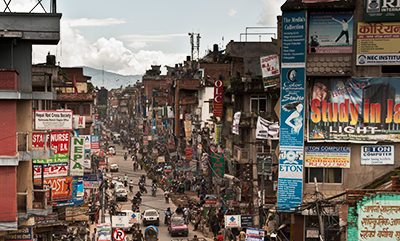Outcomes Worse for Diabetes Patients from Urban Areas.
 Patients with Type 2 diabetes who live in urban areas of Nepal had poorer physical health and overall quality of life (QOL) than those from rural areas, according to a study co-authored by a recent School of Public Health graduate.
Patients with Type 2 diabetes who live in urban areas of Nepal had poorer physical health and overall quality of life (QOL) than those from rural areas, according to a study co-authored by a recent School of Public Health graduate.
The study in the journal PLOS ONE found that more than half of the people living with diabetes surveyed at a major teaching hospital in Kathmandu, Nepal, experienced depression, and that having an urban residence significantly decreased QOL scores in terms of physical health and social relationships.
The authors recommended “early diagnosis and prompt treatment of depression in (patients with Type 2 diabetes mellitus) as part of their routine primary care in Nepal.”
Nepal, largely an agrarian country, has witnessed a rapid surge of diabetes cases in recent years, with the World Health Organization estimating that the prevalence rate will rise from 2 percent of the population in 2000 to 10 percent by 2030. The authors said there is a rural-urban divide in prevalence, with higher rates in cities such as Kathmandu, the capital.
Type 2 diabetes, which accounts for the majority of all diabetes cases, has a number of potential chronic effects, including cardiovascular diseases, kidney disorders, and blindness.
The study was conducted in 2014, before the Nepal earthquakes in early 2015. The research team recruited 157 patients with diabetes; 54 percent of them reported experiencing depression. Those who had been diagnosed more than 10 years ago had higher physical health scores, although many study participants reported lowered energy, reduced mobility, and other health problems.
The authors recommended further studies to explore the effects of depression and related comorbidities on the growing diabetes population.
Co-authors include Abhishek Sharma ’15, a recent graduate in global health who is affiliated with the Center for Global Health and Development. The study was led by Shiva Raj Mishra of the Nepal Development Society, with contributing authors from the Institute of Medicine, Maharajgunj Medical Campus, Tribhuvan University, Nepal.